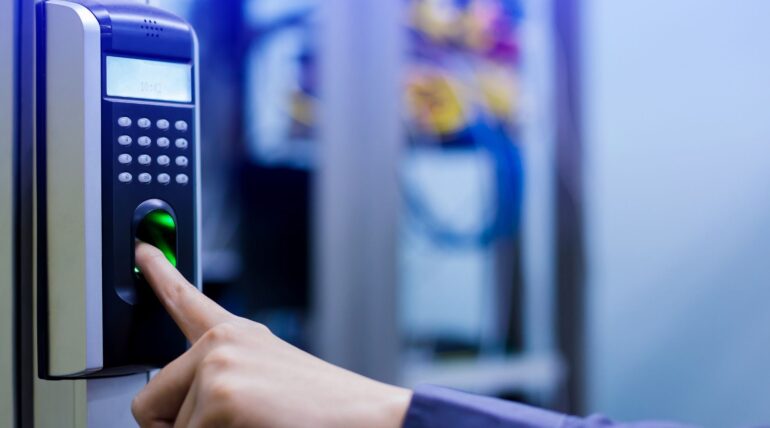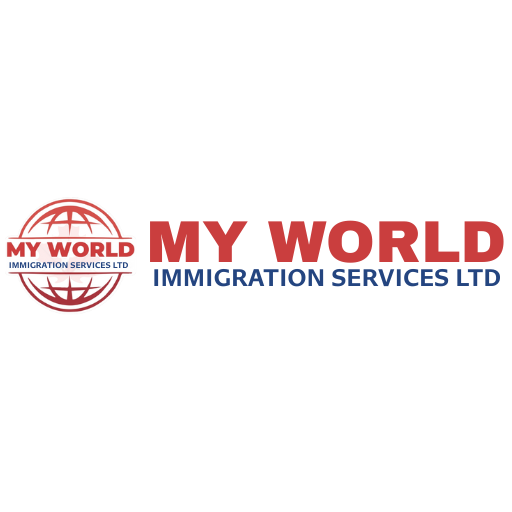
October 26, 2025
U.S. Biometric Rules 2025: MyWorld Immigration Consultants Reveal What Every Canadian Traveler Must Know
Published by MyWorld Immigration | October 2025
The U.S. is about to change the way millions of people cross its borders — and Canadians are no exception.
Starting soon, all non-U.S. citizens — including Canadians — will be required to provide biometric data such as photographs and facial recognition scans when entering or exiting the United States.
This sweeping reform marks one of the biggest shifts in U.S. border policy in decades, aiming to strengthen security, prevent overstays, and modernize immigration tracking systems.
But for travelers, workers, and students who frequently cross the border, the question now is:
👉 What do these biometric rules really mean for you?
🧬 What Are the New U.S. Biometric Rules?
Under the new U.S. Department of Homeland Security (DHS) regulation, biometric screening will soon be mandatory for every non-American entering or leaving the country.
That means:
📸 Travelers will be photographed and facially scanned at all U.S. entry points.
🧾 Biometric data will be matched with immigration and security databases.
🧍♂️ Canadians and other visa-exempt travelers will no longer be able to opt out of these checks.
Currently, travelers from Canada can request manual inspection instead of biometric collection — but that option is being completely phased out.
✈️ Where Will This Apply?
The new biometric system will roll out across airports, land borders, and seaports, covering all major travel routes between Canada and the United States.
- 🛫 Airports: Facial recognition will be used for both entry and boarding verification.
- 🚗 Land Crossings: Cameras and biometric scanners will record travelers entering or leaving via vehicle or foot.
- 🚢 Seaports: Cruise and ferry passengers will also be screened through biometric systems.
The U.S. Customs and Border Protection (CBP) and DHS have already begun expanding testing at major border points such as Detroit-Windsor, Buffalo-Niagara, and Vancouver-Seattle routes.
🔒 Why Is the U.S. Enforcing These Rules?
U.S. officials claim the biometric system is essential to:
✅ Identify overstays and track visa durations more accurately.
✅ Prevent identity fraud and illegal re-entry.
✅ Modernize entry-exit systems for faster, contactless screening.
✅ Enhance national security and streamline immigration records.
However, privacy advocates and frequent travelers argue the new system may collect excessive personal data, raising concerns about storage, surveillance, and misuse.
🇨🇦 What Does This Mean for Canadians?
For decades, Canadians enjoyed one of the easiest cross-border travel privileges in the world. That’s about to change.
Once implemented, Canadian travelers — even those on short trips — will be required to undergo biometric checks similar to those applied to visa holders.
This means:
- 📷 Your photo will be taken each time you cross into or out of the U.S.
- 💾 Your data will be stored in U.S. government systems.
- ⏱️ Expect longer lines and wait times during the early rollout phase.
Regular commuters, truck drivers, cross-border healthcare workers, and families visiting relatives will feel the effects most directly.
⚠️ Privacy and Data Concerns
While U.S. authorities promise the biometric process will be fast, secure, and efficient, critics aren’t convinced.
Concerns include:
🔐 How long the U.S. will retain biometric data.
🌍 Whether the information will be shared internationally.
🙅♀️ Potential misuse or security breaches involving sensitive traveler information.
The move also highlights a growing global trend — where biometric identification is becoming a default part of international travel, from Canada’s eTA system to Europe’s ETIAS program set to launch soon.
🧭 What Travelers Should Do Now
If you plan to travel to the U.S. in 2025 or beyond, prepare early:
✅ Ensure your passport and travel documents are valid and up to date.
✅ Register with trusted traveler programs (like NEXUS) for faster clearance.
✅ Keep track of policy changes through official sources.
✅ Consult a licensed immigration consultant if you have dual intent, work permits, or ongoing visa processes.
💼 MyWorld Immigration: Guiding You Through Every Border Change
At MyWorld Immigration, our RCIC-certified immigration consultants stay on top of every major policy change that affects international travelers, students, and professionals.
We help you:
🌐 Understand how new U.S. and Canadian immigration policies affect your travel.
📋 Prepare compliant documents for work, study, or visitor visas.
🧭 Navigate cross-border regulations without risking entry refusals or delays.
💬 Stay informed through expert updates and personalized immigration guidance.
Whether you’re a frequent U.S. traveler, a Canadian PR applicant, or someone planning to move abroad, our consultants provide trusted, transparent, and timely advice every step of the way.
✨ Travel Smart. Stay Informed. Stay Ahead.
The future of global travel is biometric — and understanding these changes is your best protection.
Let MyWorld Immigration help you travel confidently and compliantly under the new U.S. biometric system.
📞 WhatsApp: +1-672-399-0000
🌐 Website: www.myworldimmigration.com
📧 Email: info@myworldimmigration.com
🌍 Serving clients in Canada, India, UAE, and worldwide.
